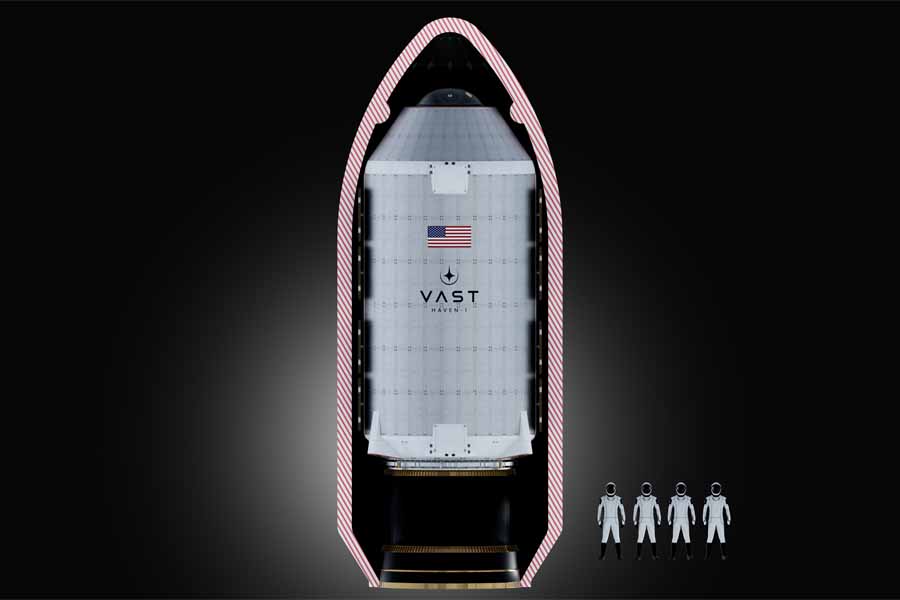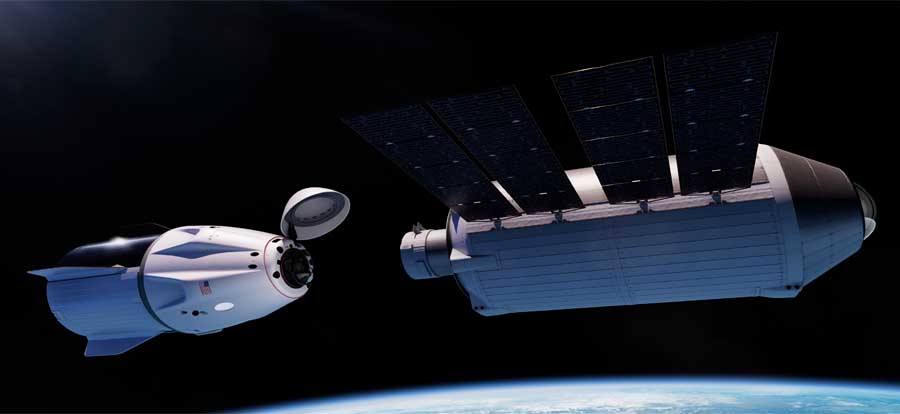Vast Space announces SpaceX partnership for world's first private space station
GadgetByte Nepal
May 17, 2023

Vast Space, a new aerospace company settled to making human life multi-planetary, has recently announced its joint proposal with SpaceX to launch the first commercially viable space station, named Haven-1. With the news of NASA deorbiting the ISS and crashing it into the Pacific Ocean by 2031, many private space companies have started planning to build a commercial station to grab a spot in Earth’s low orbit.

Haven-1
The Vast is planning to send Haven-1 via Falcon-9 rocket (SpaceX’s spacecraft that has been serving for more than a decade) to the low orbit and leave it there to free float independently. The Haven-1 will have life-sustaining consumables of its own, along with science and experimentation tools, 1000W of power, always-available WiFi, and a huge dome for photography. It is only about 10 meters long and 4 meters wide, which is enough room to accommodate 4 people.It is designed to be compatible with SpaceX Dragon spacecraft for easy crew transportation between the station and Earth. Despite its highly regulated environment, Haven-1 will prioritize the privacy of astronauts, ensuring their schedules remain confidential.
- You might also like:
Vast-1
The Vast-1 mission will subsequently follow the Haven-1, where 4 astronauts will leave for Haven-1 in SpaceX Dragon Spacecraft. SpaceX will train the astronauts to carry out their duties and reside within the spacecraft for almost a month before concluding their missions and returning to Earth in a Crew Dragon Capsule.The mission as a whole is an absolute opportunity to know about in-space manufacturing, advanced search, and related research, benefiting not only those directly involved in the mission but also anyone with interest in the future of space exploration.
Vast's declaration
The Vast announced to sell of all four seats at its initial launch to individuals related to domestic and foreign space agency projects, of which the pricing is not declared yet.The CEO of Vast Space, Jeb McCaleb described that he is not seeking for any outsiders to invest in this plan until the space station starts generating revenue and also added that he is investing $300 million of his own.Vast is thrilled to embark on this journey of launching the world's first commercial space station, Haven-1, and its first crew, Vast-1Vast's long-term vision is to build a 328 feet long module that can spin to generate artificial gravity that can simulate a lunar-like experience. For this, Vast is trying to explore the possibility of the world's first spinning artificial gravity experiment on Haven-1.
Competition and Prospects for Haven-1
Many other private aerospace companies, including Blue Origin, Starlab, and Axiom, are planning their own space station and have an equal chance to put Vast in the shade. The concepts sound very absorbing, but like many other announcements of putting up a colony on Mars or Galileo’s mission to Jupiter, this also can be a topic of wait and observe.- Meanwhile, check out our informational video on Nepal's own Munal satellite.

To say something about myself, I have been writing tech and gadgets from 2021. Although coming from a non technical studies background, I'm someone who is always fascinated by the latest gadget and tech innovations, circling around. Besides writing, you'll find me listening music and aligning the stars through astrology and sometimes even, tarot cards! 😉🧿
Comments
No comments yet. Add a comment to start a discussion




